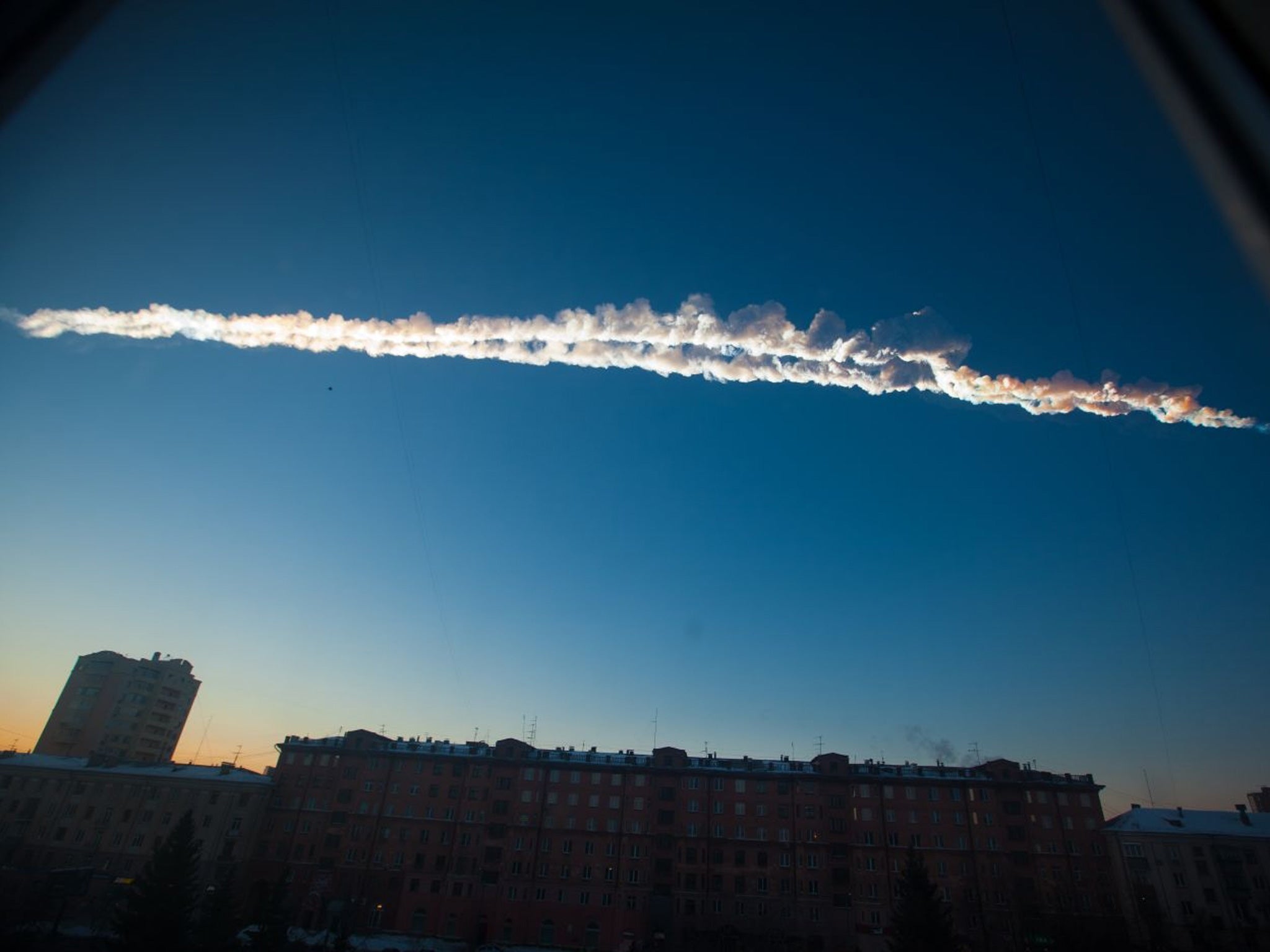Shockwave from Russian meteor that left 1,000 people injured 'went twice around the earth'
Researchers said the event was the 'most powerful ever recorded' by the system

Your support helps us to tell the story
From reproductive rights to climate change to Big Tech, The Independent is on the ground when the story is developing. Whether it's investigating the financials of Elon Musk's pro-Trump PAC or producing our latest documentary, 'The A Word', which shines a light on the American women fighting for reproductive rights, we know how important it is to parse out the facts from the messaging.
At such a critical moment in US history, we need reporters on the ground. Your donation allows us to keep sending journalists to speak to both sides of the story.
The Independent is trusted by Americans across the entire political spectrum. And unlike many other quality news outlets, we choose not to lock Americans out of our reporting and analysis with paywalls. We believe quality journalism should be available to everyone, paid for by those who can afford it.
Your support makes all the difference.The shockwave from a meteor which exploded over Russia earlier this year travelled twice around the earth, scientists have said.
More than 1,000 people were injured when the 10,000-tonne, 17m rock exploded over the town of Chelyabinsk.
Tremors from the explosion of the space rock were recorded at 20 'infrasonic' monitoring stations around the globe. The stations, which are part of the International Monitoring System network operated by the Comprehensive Nuclear-Test-Ban Treaty Organisation, are designed to detect nuclear weapon tests.
They search for ultra-low frequency waves known as infrasound that could derive from nuclear test explosions.
The findings, published in the journal Geophysical Research Letters, claim the explosion was the first time the stations had detected "multiple arrivals involving waves that travelled twice round the globe". The researchers said the event was the 'most powerful ever recorded' by the system.
The explosion occurred on 15 February this year when the asteroid, which entered the Earth's atmosphere travelling at 50 times the speed of sound, exploded in an air burst above the southern Ural region of Russia. Some 7,200 buildings in six different cities were damaged by the explosion.
Join our commenting forum
Join thought-provoking conversations, follow other Independent readers and see their replies
Comments